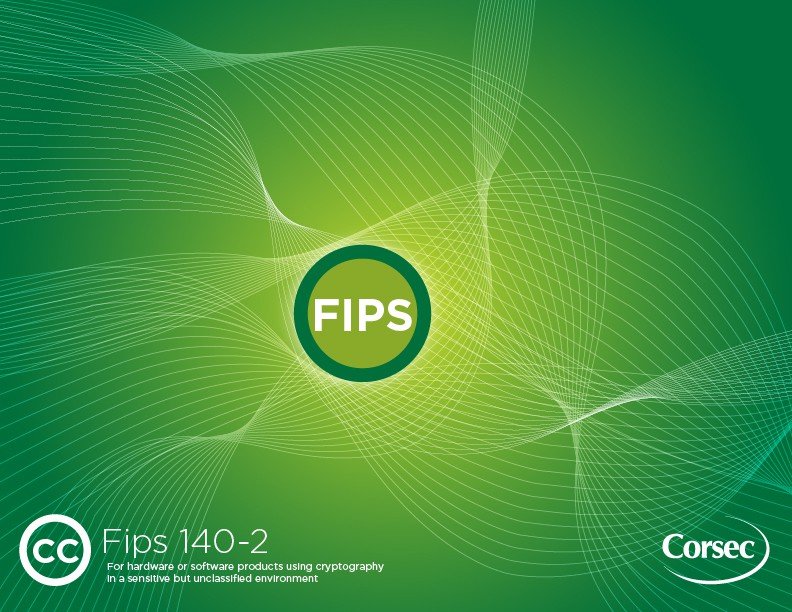What Is the FIPS 140-3 Certification Process?
The Federal Information Processing Standards (FIPS) 140-3 certification process is a rigorous validation method that ensures cryptographic modules meet specific security standards required by the U.S. and Canadian governments.
The process, overseen by the National Institute of Standards and Technology (NIST) and the Communications Security Establishment (CSE) in Canada, is essential for any product that handles sensitive information.
While the certification process may seem complex, it’s crucial for ensuring that cryptographic modules operate securely and effectively. This guide aims to clarify what the FIPS 140-3 certification process entails and dispel common misconceptions surrounding it.
Key Differences Between FIPS 140-2 and FIPS 140-3
One of the most significant updates in FIPS 140-3 is its alignment with the international standard ISO/IEC 19790:2012. This change introduces new requirements and a more standardized approach to cryptographic module validation, making the process more consistent across global markets.
Key Differences:
- International Alignment: FIPS 140-3 incorporates the ISO/IEC 19790:2012 standard, promoting global harmonization.
- Enhanced Security Requirements: FIPS 140-3 introduces stricter testing and validation processes to ensure higher security levels.
- Modular Testing: The new standard allows for more flexible testing, focusing on specific components rather than requiring an entire system overhaul.
Understanding these differences is crucial for organizations looking to stay compliant and secure in an evolving digital landscape.
Step-by-Step FIPS 140-3 Process Explained
- Preparation:
- Initial Assessment: Determine if your cryptographic module needs FIPS 140-3 validation based on its intended use within government systems.
- Documentation: Gather all necessary documentation, including design specs, security policies, and operational procedures.
- Testing:
- Accredited Laboratory Testing: Submit your cryptographic module to a NIST-accredited lab for rigorous testing against FIPS 140-3 requirements.
- Security Review: The lab will test the module’s security functions, including encryption algorithms, key management, and physical security features.
- Validation:
- NIST/CSE Review: After testing, the results are submitted to NIST or CSE for final review. They will verify that the module meets all FIPS 140-3 criteria.
- Certification Issuance: If the module passes all tests and reviews, it receives FIPS 140-3 certification, allowing it to be used in sensitive government applications.
- Post-Certification:
- Ongoing Compliance: Maintain compliance by regularly updating and re-testing your module as standards evolve.
- Renewal: Be aware that FIPS certifications require renewal, especially when there are significant updates to the module or the standards.
Why Work with FIPS 140-3 Validation Experts?
Navigating the FIPS 140-3 certification process can be daunting without expert guidance. Engaging with validation experts like Corsec ensures that your cryptographic module meets all necessary standards efficiently and effectively.
Benefits of Working with Experts:
- Experience: Corsec has completed over 300 certifications, making us a trusted partner in achieving FIPS compliance.
- Efficiency: Our experts streamline the certification process, helping you avoid common pitfalls and delays.
- Compliance Assurance: We stay up-to-date with the latest FIPS standards and requirements, ensuring your product remains compliant.
Frequently Asked Questions About FIPS 140-3
Q: What happens if a cryptographic module fails FIPS 140-3 testing?
- A: If a module fails, you will receive a detailed report highlighting the areas that need improvement. You can then make the necessary adjustments and resubmit the module for testing.
Q: How long does the FIPS 140-3 certification process take?
- A: The timeline varies depending on the complexity of the module and the thoroughness of the preparation. However, most certifications take several months to complete.
Q: Is FIPS 140-3 certification mandatory for all cryptographic modules?
- A: It is mandatory for any module used in federal systems handling sensitive information. It’s also highly recommended for organizations seeking to enhance their security posture.
Need Expert Guidance on FIPS 140-3 Certification?
If you’re ready to get your product through the FIPS 140-3 certification process or have questions about the regulations and standards associated with FIPS, Corsec’s team of experts is here to help.
With over 300 successful certifications, we have the experience and knowledge to guide you through every step. Contact us today to learn more.
